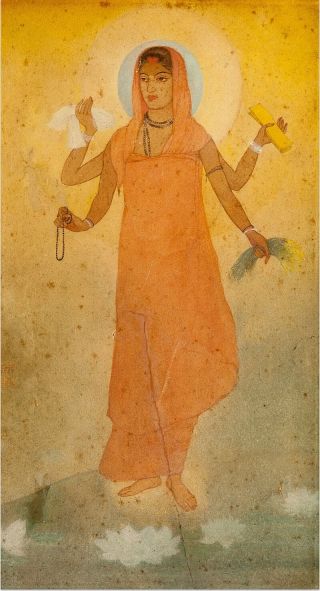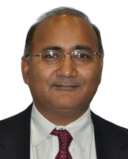Cross-Cultural Psychology
The Psychology of Hindu Nationalism
How to make sense of Narendra Modi's cultural archetypes.
Updated June 5, 2024 Reviewed by Lybi Ma
Prime Minister Narendra Modi of India often extols his biological mother, Heeraben Modi (1923-2022), and Bharat Mata, or "Mother India," in the same speeches to arouse the masses. This political imagery harkens back to the independence movement (1857-1947), when the Bengali nationalists regularly used this trope to excite the masses, and even much earlier to the Indus Valley civilization, where the fertility cults centered around the figure of the pregnant female deity; in Modi’s India, it has found new resonance and popular mass appeal perhaps due to the history of Rashtriya Swayamsevak Sangh (RSS).
%20(1).jpg?itok=7uOydl6s)
We know that the psychology of nationalism involves “collective narcissism” about one’s own group’s greatness vis-a-vis perceived or real adversaries, stretching back to studies of fascism by Adorno, Fromm, and others, where in-group members inflate their self-image and self-importance and denigrate other groups' representations. The real or perceived group differences may be rooted in an "archetype," or what I believe can be better described as “a cultural archetype,” different from what Jung called universal archetypes in our psyche and brain.
The cultural archetype of “Mother India,” violently suppressed and abused by foreign rulers and who must be rescued and freed, has always worked “magically,” because psychologically, it hits close to home for many Hindu Indians. The mother complex can manifest as an individual psychological complex and a cultural archetype, seen in the wider population within the in-group, which then serves as a point of tension with the others in the out-group—other ethnic minorities, religious groups, and nationalities.
Today, India has no foreign rulers (that we know of, except Foreign Direct Investments, the Neo-Liberal economic order, and globalization). Why the "return of the repressed" rhetoric in the nationalistic language?
"For 'Father Time' in India is a Mother," wrote Erik Erikson in "Gandhi's Truth." Psychologists and analysts have long theorized that unlike the Oedipus complex in the West, which is centered on a father-son rivalry, in India the theme of “maternal enthrallment,” or Devi complex, dominates the Indian psyche (Bose, 1922; Kakar, 1981; Kakar and Ross, 1989). This is as much a psychological complex as it is a cultural one.
_0.jpg?itok=HONkfOI8)
Recently, in a speech to the U.S. Congress, Modi even said India is the “mother of democracy.” The claim seems to suggest that India gave birth to the idea of democracy as all peoples everywhere are considered equal in the eyes of their government. The claim gave a psychological uplift to India's image globally.
The Sanskrit phrase Vasudhaiva Kutumbakam, suggests that the world is one big family. The claim was also the centerpiece of the Indian Ministry of Culture at the G-20 last year, “Bharat: Mother of Democracy.”
“Democracy is an age-old concept in India. As per the Indian ethos, democracy comprises the values of freedom, acceptability, equality, and inclusivity in a society and allows its common citizens to lead a quality and dignified life. The Rigveda and the Atharvaveda, the earliest available sacred texts refer to participatory institutions like the Sabha, Samiti, and Sansad, the last term being still in currency denoting our parliament.”
As we approach Modi’s third term in office (Pandit Nehru, India's first PM, won three terms in 1962), it might be instructive to pay attention to the political wording and iconic imagery vis-a-vis the reality of Modi’s Bharat. Notice the term “India” has been replaced with “Bharat” to rid the last psychological vestiges of foreign invasions.
However, this language, with its deeply rooted psychological underpinnings that unite us, can also divide us along sectarian lines, alienating minorities such as Muslims, Sikhs, Christians, Dalits, Buddhists, Jain, and Zoroastrians (Parsis) and many other groups that don't share in the same Hindu mythology.

How far will this psycho-religio-politico-cultural transformation take Indians in the 21st century? No one knows, notwithstanding claims to the contrary, about India’s emerging superpower world status. Yet, the raw populist or psychological appeal of Modi’s “Bharat Mata Ki Jai” (Glory to the Mother India)—both for the Modi-bhakts and his dissenters—is undeniable.
References
Adorno, T. (2020). The authoritarian personality. https://www.versobooks.com/blogs/news/4421-the-authoritarian-personality
Bose, G. (1922). Concept of Repression. Psychoanalytic Review 9:104. https://pep-web.org/browse/document/psar.009.0104a
Erikson, E. (1968). Gandhi's Truth. WW Norton.
Fromm, E. (1963). Nationalism as an Expression of Group Narcissism, with Erich Fromm. 92nd Street Y. https://www.youtube.com/watch?v=ckRgGgdjzBs&t=115s
Harappa.com. (2016). The Mother Goddess and Village Culture. https://www.harappa.com/blog/mother-goddess-and-village-culture
Jung, C. (1991). Archetypes and the Collective Unconscious. Routledge.
Kakar, S. (1981). The Inner World. Oxford.
Kakar, S. and Ross, J. M. (1989). Tales of love, sex and danger. Blackwell.
Ministry of Culture. (2023). Bharat: Mother of Democracy. https://www.indiaculture.gov.in/bharat-mother-democracy
Stevens, A. (1983). Archetypes: a natural history of the self. William Morrow.


